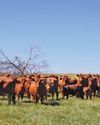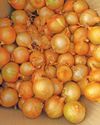
Hydroponics is an intensive method of farming in which large amounts of food can be grown in a small area. Hydroponics comes from the Greek ‘hydro’ and ‘ponos’, which mean ‘water’ and ‘labour’ respectively. In 1929, Dr William Gericke, a professor at the University of California in the US, first used the word to describe the growing of food without soil, and often using artificial lights instead of direct sunlight. Gericke reportedly grew tomatoes in a chemical solution, with vines reaching around 7,1m in length.
ADVANTAGES OF A HYDROPONIC SYSTEM
• It allows for food to be grown in places where conventional agriculture cannot be used; Hydroponics, for example, allow countries such as Israel to produce surplus fresh produce;
• There is better control of nutrients, pH and the growing environment, providing conditions that are ideal for the optimisation of yields;
• Less water is used in farming, reducing costs and promoting more environmentally friendly production;
• More oxygen is let through to the crop's root zone, and plants therefore grow more vigorously and at a quicker rate;
• It reduces the pathogen load via the elimination of the use of soil for production;
• It needs less labour as there is no weeding required. As crops such as strawberries are lifted off the ground in hydroponics, labour with regard to harvesting is also reduced.
DISADVANTAGES OF A HYDROPONIC SYSTEM
• The capital outlay is higher than that of a conventional system. The upkeep and maintenance of the system may also be high.
• Expertise is needed to run a hydroponic system.
• While disease load may be lower than in a conventional system, diseases such as Fusarium and Vericillium can spread more quickly through a hydroponic system.
Denne historien er fra March 31, 2023-utgaven av Farmer's Weekly.
Start din 7-dagers gratis prøveperiode på Magzter GOLD for å få tilgang til tusenvis av utvalgte premiumhistorier og 9000+ magasiner og aviser.
Allerede abonnent ? Logg på
Denne historien er fra March 31, 2023-utgaven av Farmer's Weekly.
Start din 7-dagers gratis prøveperiode på Magzter GOLD for å få tilgang til tusenvis av utvalgte premiumhistorier og 9000+ magasiner og aviser.
Allerede abonnent? Logg på

The genetically unique Senepol: ideal for beef production in Southern Africa
Since its arrival in South Africa in 2001, the Senepol has become a strong contender in the country's beef cattle arena. Tiekie Muller, owner of the Nooitgedacht Senepol stud, spoke to Annelie Coleman about how the growing number of Senepol stud breeders underpins the value of the breed under exacting African conditions.

Microwave mango and granadilla cheesecake
This delicious mango fridge tart is so easy to make, perfect when you want a quick yet indulgent dessert (it only takes 25 minutes to whip up). The fruit’s gorgeous colour and fragrance are maximised.

Global outlook for wheat in 2024/25
In its latest estimate, the International Grains Council has adjusted global wheat production for the coming season due to poorer-than-expected harvests in the EU. However, global supplies remain strong, while global consumption is expected to increase to reach about 804 million tons. Janine Ryan reports.

From fallow land to award-winning wines: the Newstead story
Newstead Lund Family Vineyards, a relatively new wine estate, has established itself as one of the best producers of sparkling wine in South Africa. Owners Doug and Sue Lund spoke to Glenneis Kriel about their production philosophy, rise to success, and possible expansion plans.

Fact file of fungal diseases in wheat
Wheat is a significant crop, and like other crops, is susceptible to a range of infections. Here, we provide information on the most important fungal diseases that affect wheat.

Soil preparation for wheat and other cereals
For seed to germinate and plants to grow, soil often needs to be prepared. The manner in which it is done depends on the type of soil, the organic matter and moisture it contains, the crop to be planted, as well as the previous crop that was planted in the field. Magda du Toit spoke to cereal experts and farmers for guidance.

The origin of the Bonsmara
The Breed of the Month for March is the Bonsmara. In this first article, we take a look at the man behind this popular cattle breed, as well as how it was developed.

The Southern Sun Cape Sun hotel is once again a destination of choice
While some of its contemporaries have suffered from inner-city neglect, the Southern Sun Cape Sun hotel has bounced back in elegance and style, writes Brian Berkman.

Age catches up with the Nissan Navara
The Navara line-up was increased last year in Nissan's effort to win back market share. The Citizen's Mark Jones sampled the top-of-the-range Pro-4X to see how the double cab compares with modern bakkies.

Growing onion sets
Bill Kerr discusses what onion sets are, and how and when to produce them to obtain the maximum financial benefit.